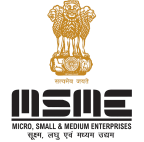Diploma in Herbal and Ayurvedic Medicine
Syllabus for Diploma in Herbal and Ayurvedic Medicine
Duration: 1 Year
Institution: Rajgor Health and Education Centre, Affiliated with Guru Kashi University
This diploma program provides a comprehensive understanding of herbal and Ayurvedic medicine. It focuses on the principles, practices, and applications of Ayurveda, alongside herbal remedies, preparing learners to practice holistic healthcare or pursue further studies.
Course Structure
Module 1: Introduction to Ayurveda and Herbal Medicine
- Fundamentals of Ayurveda:
- History and evolution of Ayurveda
- Basic principles: Tridosha (Vata, Pitta, Kapha), Panchamahabhuta (five elements), and Prakriti (body constitution)
- Introduction to Herbal Medicine:
- Definition and scope of herbal medicine
- Difference between herbal and modern medicine
Module 2: Medicinal Plants and Their Uses
- Classification of Medicinal Plants:
- Herbs, shrubs, and trees used in Ayurveda
- Seasonal and regional variations
- Identification and Cultivation:
- Identification of commonly used medicinal plants
- Basics of growing and harvesting medicinal plants
- Phytochemistry of Herbs:
- Active compounds in herbs
- Role of alkaloids, flavonoids, and essential oils
Module 3: Ayurvedic Pharmacology
- Ayurvedic Formulations:
- Types of formulations: Churna (powders), Kwatha (decoctions), Guggulu (pills), Arishta (fermented preparations)
- Methods of preparation and preservation
- Herbal Remedies:
- Herbal teas, oils, and ointments
- Home remedies for common ailments
Module 4: Anatomy and Physiology in Ayurveda
- Ayurvedic Anatomy:
- Srotas (body channels) and their functions
- Concept of Ojas, Tejas, and Prana
- Physiology in Ayurveda:
- Digestive fire (Agni) and its importance
- Concepts of Dhatus (tissues) and Mala (waste products)
Module 5: Diet and Nutrition in Ayurveda
- Ayurvedic Dietetics:
- Importance of balanced diet based on Prakriti
- Food combinations and their effects
- Herbal Nutrition:
- Nutritional value of herbs
- Use of spices and herbs in daily cooking
Module 6: Diagnosis and Treatment in Ayurveda
- Diagnostic Techniques:
- Nadi Pariksha (pulse diagnosis)
- Examination of tongue, skin, and eyes
- Herbal and Ayurvedic Treatments:
- Management of common diseases like cold, fever, and digestive disorders
- Herbal treatment for chronic conditions
Module 7: Panchakarma and Detoxification
- Introduction to Panchakarma:
- Concept of detoxification in Ayurveda
- Procedures: Vamana (emesis), Virechana (purgation), Basti (enema), Nasya (nasal therapy), and Raktamokshana (bloodletting)
- Role of Herbs in Detoxification:
- Herbal oils and decoctions used in Panchakarma
Module 8: Ayurveda and Modern Science
- Integrating Ayurveda with Modern Medicine:
- Scientific validation of Ayurvedic practices
- Safety and efficacy of herbal medicines
- Regulations and Ethics:
- Legal aspects of practicing herbal medicine
- Importance of ethical practices in Ayurveda
Module 9: Practical Applications
- Preparation of Ayurvedic Medicines:
- Hands-on training in preparing powders, decoctions, and oils
- Use of traditional tools and techniques
- Herbal Garden Management:
- Establishing and maintaining a herbal garden
- Techniques for sustainable cultivation
Module 10: Research and Case Studies
- Research in Ayurveda and Herbal Medicine:
- Methodologies for conducting research
- Documentation of case studies
- Case Study Analysis:
- Real-life applications of herbal treatments
- Group discussions and presentations
Assessment and Certification
- Theory Examinations:
- Comprehensive tests on all course modules
- Practical Examinations:
- Preparation and application of herbal formulations
- Diagnostic and therapeutic demonstrations
- Internship Evaluation (Optional):
- Hands-on practice in Ayurvedic and herbal treatment centers
- Final Certification:
- Diploma awarded upon successful completion of all academic and practical components
Learning Outcomes
- Thorough understanding of Ayurvedic principles and herbal medicine.
- Proficiency in preparing and administering herbal remedies.
- Skills in diagnosing and treating common ailments using Ayurvedic techniques.
- Capability to establish and manage a practice in herbal and Ayurvedic medicine.
This course equips learners to work as Ayurvedic practitioners, herbal consultants, or health educators, promoting natural and sustainable healthcare.
Certification
Upon successful completion of the course, participants will receive a Diploma in Herbal and Ayurvedic Medicine from Rajgor Health and Education Centre, affiliated with Guru Kashi University.

.jpg)
.jpg)
.jpg)
.jpg)
.jpg)
.jpg)
.jpg)
.jpg)
.jpg)
.jpg)
.jpg)
.jpg)